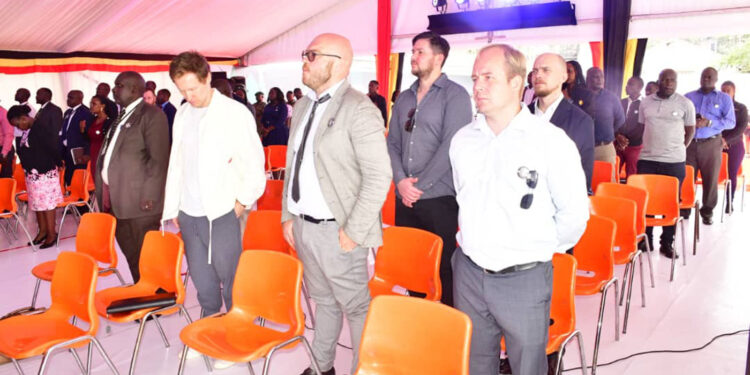In mid-March 2023, a team of five Ugandan officials flew to the Russian capital, Moscow. The team was led by Senior Commissioner of Police, Yusuf Ssewanyana, who was then in charge of the ICT department in the Uganda Police Force.
It also included his deputy, Commissioner of Police Ezrah Mujabwami; the principal vehicle inspector at the Ministry of Works and Transport, Engineer Kharim Kibuuka; the ministry’s ICT manager, David Jacob Ruhinda; and Emilly Nakkazi from the National Information Technology Authority of Uganda.
The officials were in Moscow on a benchmarking and pre-shipment exercise a few months before Uganda was meant to roll out new digital car number plates on July 1, 2023. Two years earlier, in July 2021, the Ugandan government had, through its Security and Works ministries, agreed with a Russian company, Joint Stock Company Global Security (JSCGS), to set up an “intelligent transport monitoring system” (ITMS).
After a series of high-profile assassinations of prominent Ugandans including the Assistant Inspector General of Police Andrew Felix Kaweesi by gunmen on motorcycles in March 2017, the government rolled out a CCTV camera network in key urban areas. But the killings continued and the gunmen became more brazen. On the morning of June 1, 2021, gunmen on motorcycles shot at a vehicle carrying Works and Transport Minister General Edward Katumba Wamala as he was driven to work.
Gen. Katumba, who was a former Inspector General of Police and Army Commander, survived with serious injuries, but his daughter and driver were killed in the shooting. These shootings drove the government’s plan for a digital solution to track and arrest criminals who use motorcycles and vehicles. Hence ITMS.
Few people in Uganda had heard of JSCGS before the announcement was made. When they googled the company after the announcement, journalists found a few details about the company, mainly revolving around bankruptcy proceedings that had been brought against it for failing to settle rent arrears of about $20,000.
How had a company fighting to stave off bankruptcy for a relatively small sum been able to land a contract worth an estimated $250m? In short, without transparency. The open and competitive procurement process required by law for most public contracts – and particularly those of such large sums of money – had been side-stepped by the use of restricted direct procurement, on the basis that the project contained national security aspects.
Uganda’s procurement rules allow for such direct procurements, but in qualified circumstances, such as where the company is the only one able to provide a good or service. This did not appear to be the case with JSCGS. There was no evidence of the company undertaking this or similar projects anywhere in the world.
The five Ugandan officials had thus come to Moscow to see for themselves how a similar project ostensibly set up by the company worked. The plan was to see how the ‘digital’ number plates were manufactured, issued, installed, and how they integrated with the Russian capital’s CCTV system and national identification databases to detect, prevent and aid crime investigations.
The first stop was in Skolkovo, a small town of 50,000 people on the southwestern outskirts of Moscow, and home to a business incubator technology park. Here the team was shown an Automatic Number Plate Recognition (ANPR) system in operation and tied to the network of CCTV in the small town.
ANPR systems are widespread worldwide and rely on CCTV cameras reading existing number plates to recognise the vehicles in question. The plates can be checked against databases to identify and track vehicles and persons of interest. Similar systems are already in operation in Uganda including at the Uganda Revenue Authority Head Office in Nakawa and at Entebbe International Airport where cameras scan and let through vehicles that have already paid the parking fee.
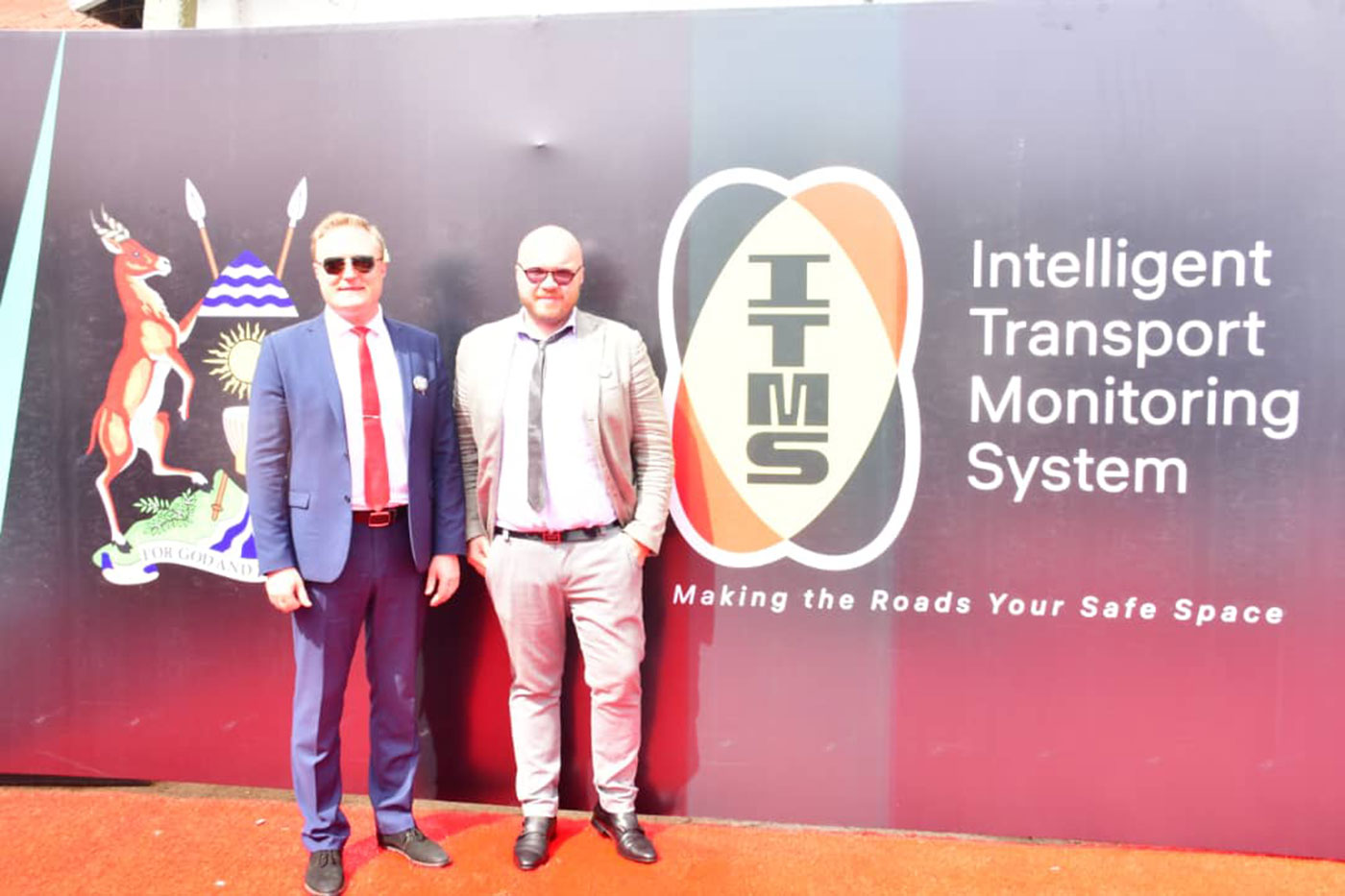
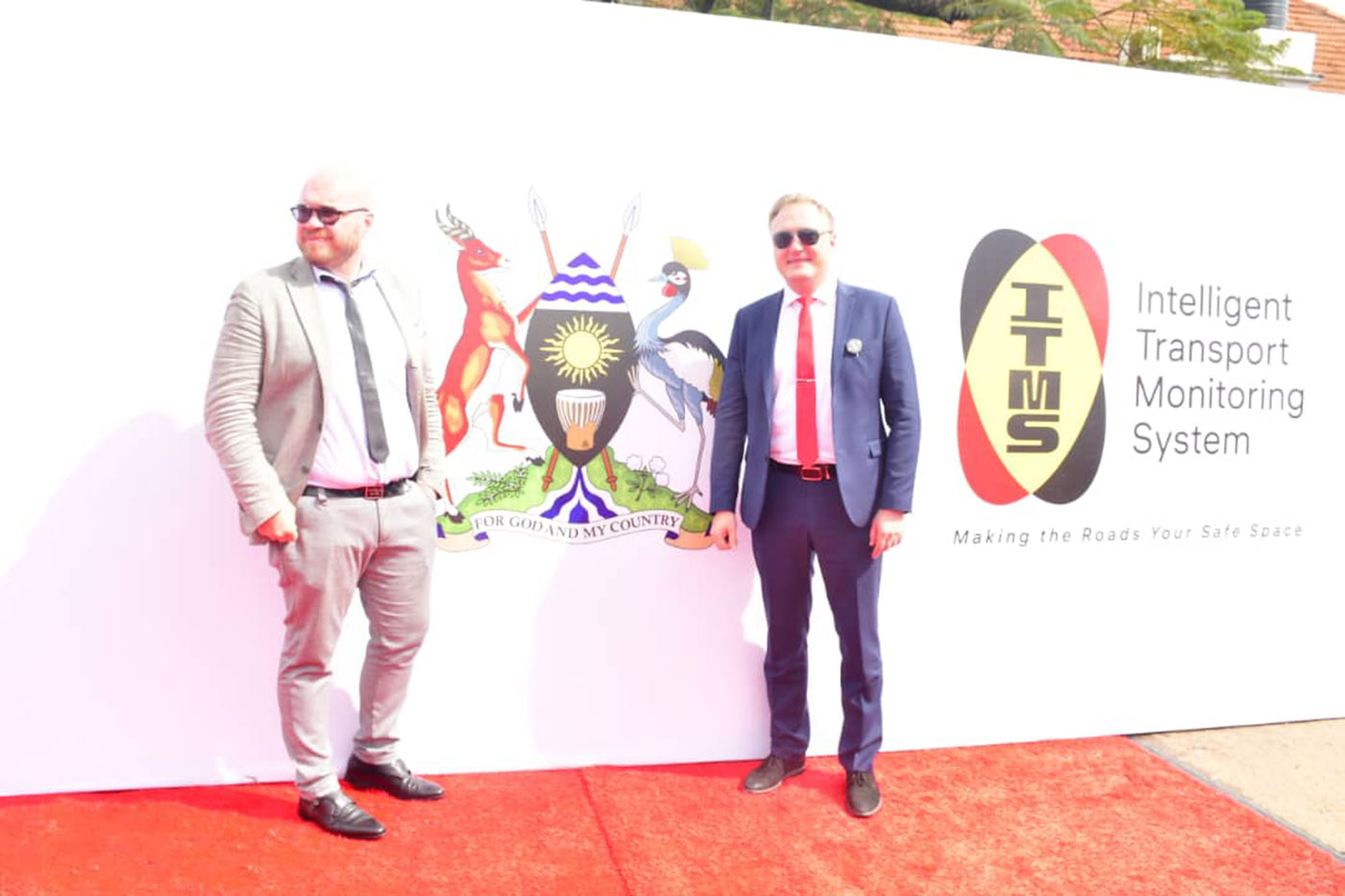
Different systems
However, the team found that Russia does not have a digital registration plate system – the system that JSCGS proposed to Uganda and which the team had gone to inspect – and uses the ANPR instead. The team would later report, “The ANPR complex has the capability to capture the vehicle number plate, analyse the data, relate it to the registered vehicle owner and locate the vehicle in real time.”
The team also found that Russia did not use the Radio Frequency Identification (RFID) system that Joint Stock Company Global Security was proposing to deploy in Uganda (and which the team was supposed to see on the visit, but did not because it did not exist).
In addition, they discovered that the Russian government printed the motor vehicle registration plates itself and did not outsource it to private companies as Uganda does, and plans to do to Joint Stock Company Global Security. In any case, the registration plates that the company planned to install in Uganda were not available for inspection because – as the team now found out while in Moscow – they were being manufactured in Poland because of the sanctions against Russia due to the war in Ukraine. With Poland and Russia on opposite sides of the conflict, it wasn’t clear – and the officials did not appear to ask how the number plates could be outsourced to a ‘hostile’ country.
The team was shuttled to a small side street in Moscow where they saw JSCGS officials assembling computer servers, and to another where they visited a company that made the Bluetooth beacons meant to be embedded into the digital motor vehicle number plates for Uganda. What the team members weren’t able to see was the full picture of what the country would be getting from the Russian firm.
“The team was not able to inspect a complete registration plate sample fully installed with chip and affixed with hologram as per specification,” they noted in a post-trip report obtained by Members of Parliament and seen by Wananchi Initiative. “This was due to the fact that the Ugandan registration plate manufacturing was being undertaken in Poland due to the sanctions placed on Russia by other EU countries.”
JSCGS promised to deliver 50,000 digital registration number plates to Uganda by June 1, 2023, a month before the project was meant to roll out. However, with just two weeks to that milestone, none of the 50,000 registration plates have been seen, inspected, verified, or imported into the country.
A proposed trip to Poland to pre-inspect the registration plates has also not taken place, despite officials warning about the need to undertake “a holistic assessment of the readiness to commence implementation of the ITMS project by July 1, 2023, as scheduled, including tasking JSCGS to provide a complete delivery schedule of the equipment required for the project”.
In their post-trip report, the officials had raised several red flags, including whether the project could realistically kick off on time. “On the basis of the established findings of the benchmarking/pre-shipment exercise, there is need for the [Project Management Team] to undertake a comprehensive assessment of readiness to implement the project by July 1, 2023, putting into consideration all tasks that need to be implemented prior to commencement including training and public awareness.”
As it turned out, the July 1, 2023, start date was missed. Instead, a scaled-down version of the project was officially launched on November 1, 2023, with a focus on piloting the new digital number plates on government-owned vehicles. The mass rolling out of the new plates for privately owned vehicles is now expected to begin on March 1, 2024.
Car owners acquiring registration plates for the first time are expected to start paying Shs714,000 per car while those replacing existing plates are expected to pay Shs150,000. Motorcycle owners are expected to pay around Shs50,000.
The Minister of Internal Affairs Major General Kahinda Otafiire and the Commissioner General of Uganda Revenue Authority John Rujoki Musinguzi have expressed concerns about the high cost of the new motor vehicle registration plates which reflect a tripling of the cost for first-time registrants.
Under the terms of the contract, JSCGS is supposed to cover the costs of setting up the project and then recover its money, plus a markup, through traffic fines and the cost of new motor vehicle registration plates, over 10 years.
However, the government is required to cover any shortfalls in the company’s revenue projections and any gaps, whether due to poor planning, delays or defective installations will eventually be met by the taxpayer.
A review of the project’s financial model shows that the Russian firm is supposed to invest $257 million in setting up the project. The amount is meant to cover the cost of roadside CCTV cameras, speed radars, smart registration plates, electronic tracking devices and back-end operations.
The money is to be recovered over 10 years from traffic fines and the sale of digital number plates, with the project expected to bring in $974 million over that period. However, with unanswered questions about where the plates and trackers are being manufactured and at what cost, and without a country with a similar project to benchmark against, it is not clear how much money the Russian company has invested in the project.
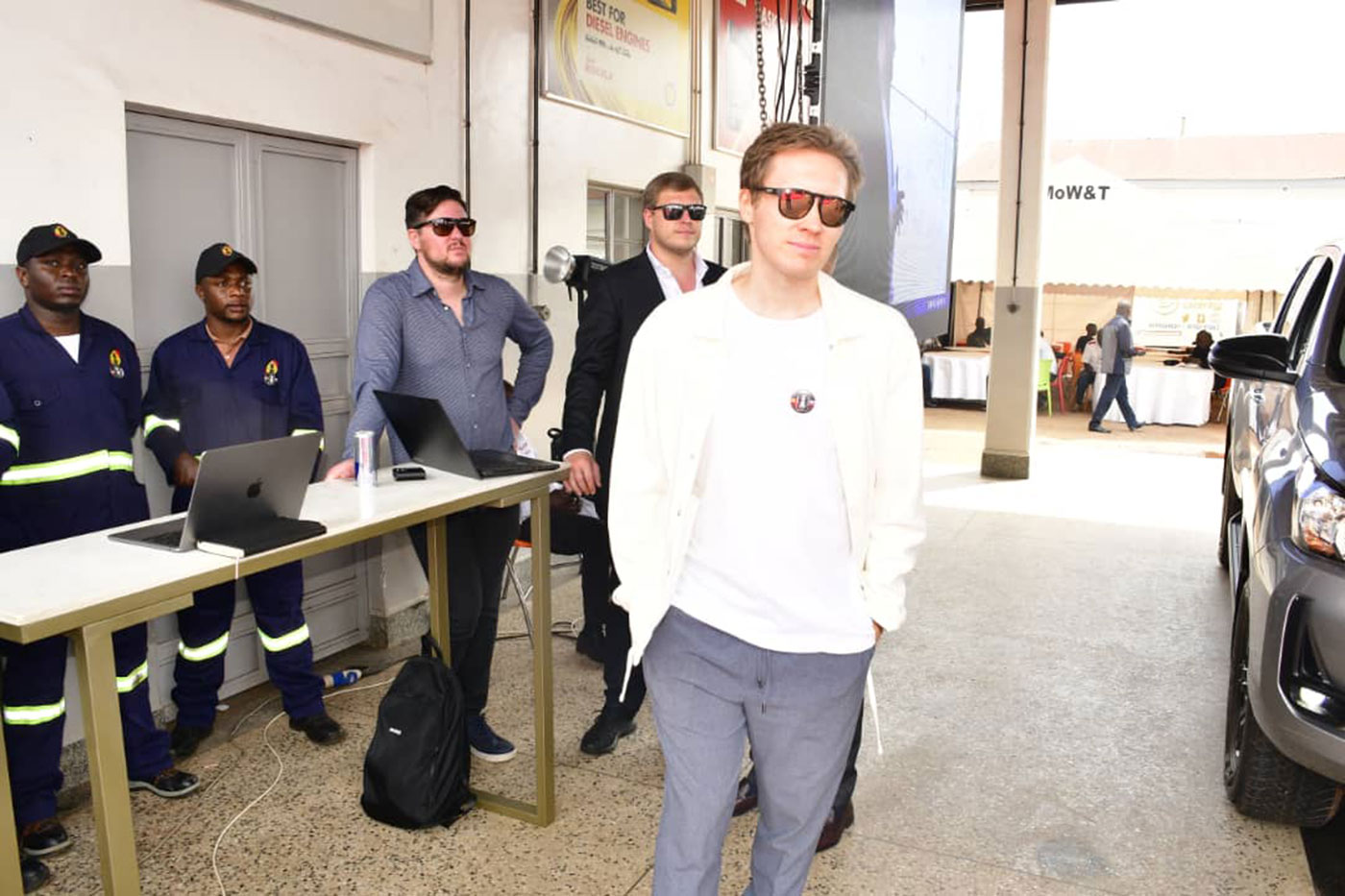
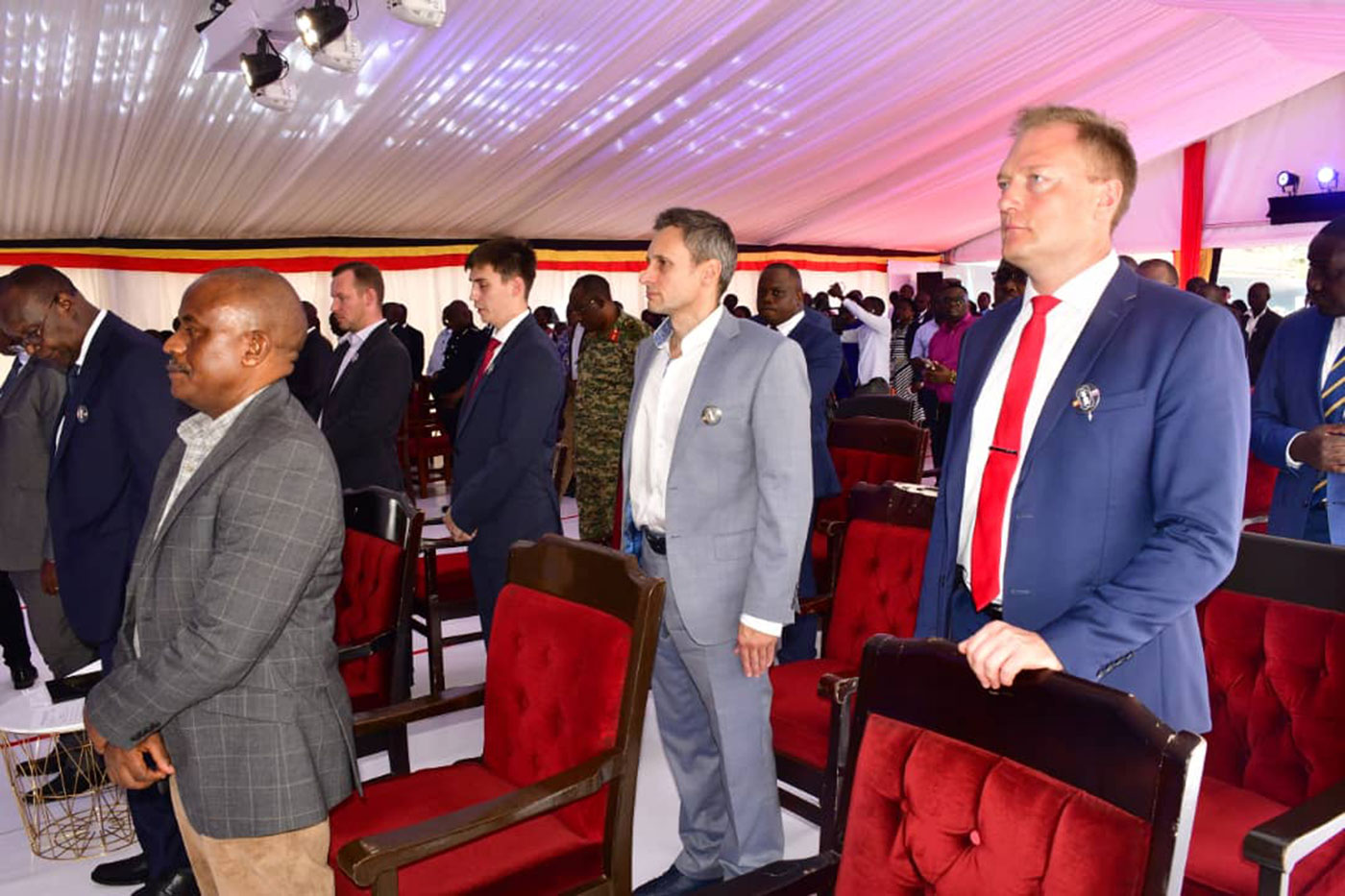
Blind spots
Without clarity about where the number plates are being manufactured and how quickly they can be delivered to Uganda, it remains unclear whether the new rollout date for private vehicles will be met.
Any additional delays in the delivery of the plates could leave motorists unable to register their new vehicles and undermine government revenue collection. In addition, the delivery and installation of untested and unverified motor vehicle registration plates could lead to substandard or defective plates that do not work as required, or can easily be tampered with.
The ANPR system in Russia was set up by the government and there is no proof that JSCGS played any role in it. In February and March 2022, Parliament’s Committee on Defence and Internal Affairs raised several questions about the digital number plates contract.
In response, Noah Baalessanvu, an official with a small private IT firm in Kampala who claimed to have been part of the team that did due diligence on JSGSC (this happened before the official pre-shipment visit of the five officials noted above), said the firm would manufacture the digital plates and tracking devices within Uganda.
However, two-and-a-half years after being awarded the contract, no factory has been built to manufacture the plates or the tracking devices in Uganda.
Mr Baalessanvu also told MPs that they had visited the Russian company, talked to clients in countries that had bought services from the firm, and established that the firm was competent. “To the satisfaction of the team that went there, the company had demonstrated that they had both the technological capacity and the manufacturing capacity to undertake this project,” he said. MPs do not appear to have sought to find out in which capacity the private official had conducted due diligence on behalf of the government.
The official benchmarking visit by government officials did not find or speak to any client that has bought a similar project or service from the firm. When Members of Parliament attended a three-day retreat to receive briefings about ITMS in early June, they left without receiving the information they needed to reassure them about the integrity of the project.
“We went to Entebbe as a committee for three nights. We were there but nothing came out,” Bukanga North MP Nathan Byanyima of the ruling NRM party said in comments first reported in the Daily Monitor newspaper. “Nobody came to take us through, even Hon. Jim Muhwezi, the minister, nor people from the President’s Office, the security agencies; none of them took the trouble to come and brief us on the progress or what was going to be done.”
In May 2023 the Parliamentary Committee on Defence and Internal Affairs, and that of Physical Infrastructure released a joint report following an investigation into the contract. They faulted the government for how the Russian firm had been single-sourced outside public procurement laws.
MPs also rejected a proposal to tack $6 (about Ush22,500) on every third-party motor vehicle insurance policy purchase to subsidise the cost of installing the new number plates on motorcycles.
In the report, MPs noted that they had not been given findings of a pilot study under which the system had been tested on a handful of cars and locations in the country, and recommended to the Works Ministry to implement the project according to the findings of the pilot. Our investigations could not find any of the eight private motor vehicles, four buses, three matatus and five motorcycles that are reported to have been installed with the new digital number plates in the pilot study.
Security outfit
There was a good reason for the secrecy behind the company and its promoters. While there is no evidence to show any country where the proposed new system has been rolled out, or even Joint Stock Global Security Company (JSGSC)’s role in such a project, investigations by Wananchi Initiative show that the company’s previous work has mostly been as a military sub-contractor with close ties to the Russian military establishment.
Two of the company’s founding shareholders, Ivan Shkarban and Aleksey Kagarlytsky served in the Russian Armed Forces. This, in itself, is not unusual in a country where military service is mandatory for all male citizens of a particular age, with a few exceptions. However, before setting up Global Security, the two officials were affiliated with several companies that operate in the security and military industries in Russia, and together established a company that specialised in the production of weapons, according to corporate filings.
Publicly available information shows that Global Security has won a number of contracts in the security and defence sectors although the real number could be higher, since a large part of Russia’s defence budget, as with many countries, is kept secret.
Global Security has previously produced bullet-proof shields and developed exoskeletons that soldiers use to transport heavy loads in combat zones, our investigations show. One of JSGSC’s subsidiaries, Global Security Engineering, developed and supplied military equipment for Russian military units in Syria and also filed patent applications for an exoskeleton model it developed. Exoskeletons help humans carry heavy weights.
In July 2015 Global Security was awarded a government contract worth about $370,0000 to supply plastic elements for the construction of anti-shock shields to a federal prison in the Bryansk region. The contract was completed in November 2016.
In 2018 media reports indicated that Global Security was involved in a partnership to supply water from Russia’s Kamchatka Peninsula to China’s southern provinces.
The company reportedly has a branch office in Lusaka, Zambia, but we could not find evidence of any contracts won or executed in the southern African country.
In December 2021, the company registered a Ugandan subsidiary, Virtus Global Security, in which JSGSC holds 99 percent shares, with Mr Shkarban holding one percent. Other documents examined at the Uganda Registration Services Bureau list Mr Shkarban as beneficial owner of the new company with 100 percent shareholding.
Sources interviewed for this report raised questions about the Russian company’s ability to provide the investment envisaged in its contract with the government. The company was a defendant in several lawsuits over unpaid rent on its Moscow office, and appeared as a defendant in two bankruptcy cases.
In its joint investigation cited earlier, Parliament found that bankruptcy proceedings that had been initiated against the Russian company by creditors in Moscow had been resolved.
However, the relatively small sums of money involved, compared to the size of investment required into the project, have raised eyebrows. One creditor, Stok-Trading LLC had sued JSGSC for an unpaid debt of $16,260, MPs heard. Other creditors who sued the company included Tuesday GS sro Slovak Republic ($82,655),
JSC ZVI (about $500,000) Orken Alems limited liability partnership ($115,175), and JSC Royal Silk Factory ($270,000). The company also owed Russia’s Pension Fund $600 in remitted funds. These disputes all appear to have been cleared.
However, company filings show that the Uganda project would be significantly bigger than any the company has ever undertaken. Official filings showed that the company employed only 12 people and had revenues of just $500,000 in 2021. The company turned a net loss of $53,000 that year. The company lost money from 2017 and 2021, records show, except in 2018 when it made a profit of $321,000.
Russian company owners
Global Security was incorporated in Moscow on July 24, 2013, under the ownership of four low-profile Russian individuals: Maxim Muravyev (33.3%); Ivan Shkarban (24.5%); Aleksey Kagarlytsky (24.5%) and Oleg Pichugin (17.7%). As a joint-stock company, Global Security is not required to update its ownership records so it isn’t clear if any shareholders have left or been admitted into the company.
Muravyev, 48, was previously involved in a real estate management company and OOO Gidrotekhnostroy, a Moscow-based company that makes paints and varnish. He is also the majority owner of a Gidrotekhnostroy-Montazh, a small construction company based in the Russian capital.
Shkarban, 48, the company’s director general since inception, served in the Russian Armed Forces’ 16th Separate Special Purpose Brigade based in Tambov region until 2011. He later worked at ZAO Corporation, a Moscow-based producer of armoured vehicles, and in 2012 at ZAO Krofurd Protection, which also produces armoured vehicles. Between August and December 2013 he worked at ZAO NPO High-Tech Systems and Technologies, a Russian company that developed and produced missiles for the Russian Ministry of Defence. Since March 2022 Shkarban has been the president of the East African Continental Council (ANO Vaks), a Moscow-based non-profit organisation that works to develop “cultural and business relations” between Russia and Africa.
Kagarlytsky, 48, graduated from the Moscow Higher Combined Arms Command School and served in the General Staff of the Russian Armed Forces until 2008. Company filings by ZAO Grifon, a Moscow-based manufacturer of arms and ammunition, show that Kagarlytsky worked as its general director between October 2010 and September 2011. He also worked with Shkarban at ZAO Corporation Protection and at ZAO NPO High-Tech Systems and Technologies. Between August and September 2021 the official was also believed to have been involved with Koncern Automatica, a subsidiary of Rostec, the prominent Russian state defence conglomerate.
Pichugin, 59, worked in the Ministry of Foreign Affairs of the USSR until its dissolution in 1992, and continued in the same ministry of the Russian Federation until November 1994.
Wananchi Initiative supported earlier versions of this article published in the Daily Monitor.

